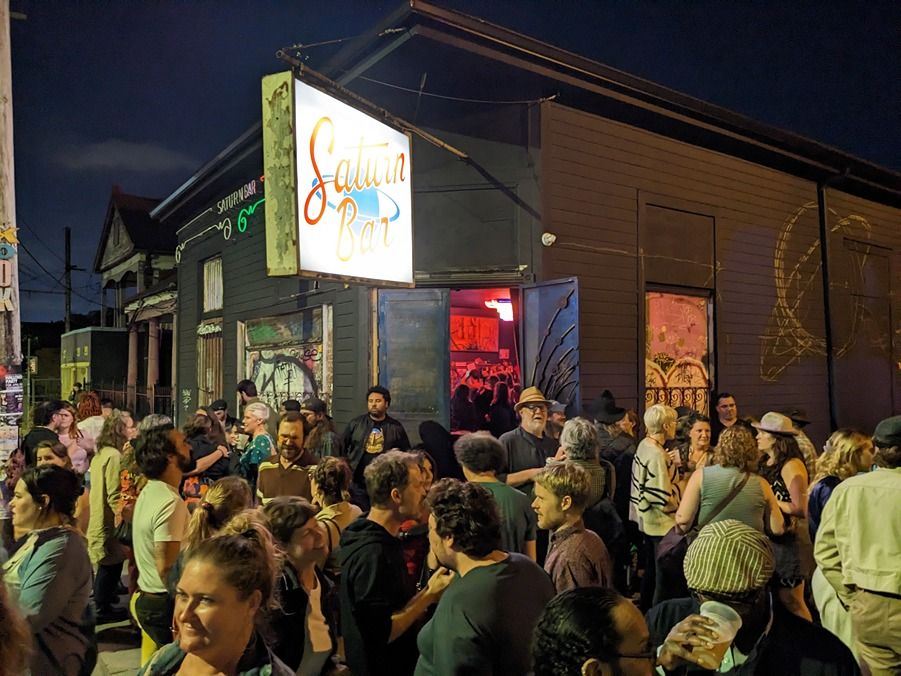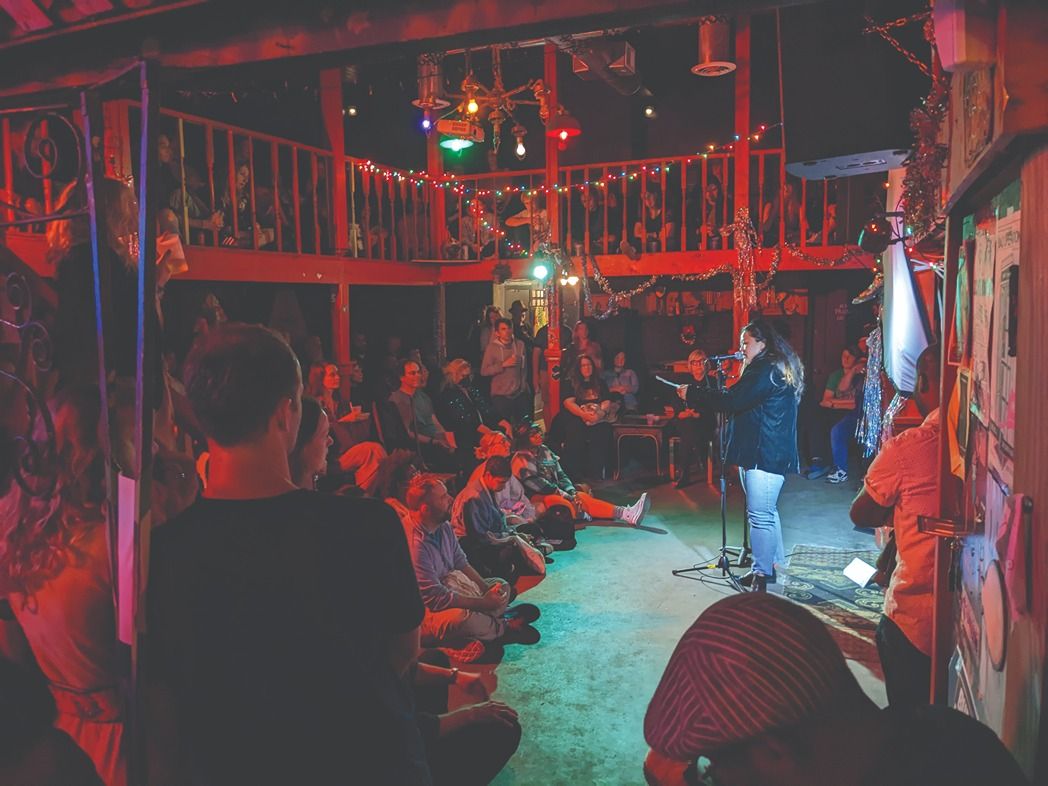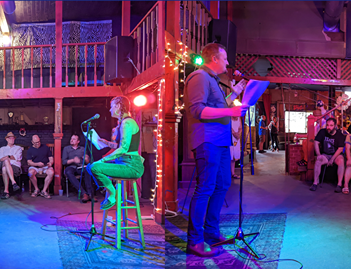Splicing Words
Even if it has admittedly gussied up a bit from the early days when the "bar" was several bottles of liquor sitting on wooden planks, the Saturn Bar on St. Claude is still a charmingly dilapidated spot, which makes it the ideal place for poetry.
The main room, framed by a wraparound balcony accented by various knickknacks accrued over the years, once upon a time held a boxing ring and currently is the beloved home base for the Splice poetry reading series, one of the city's many vibrant places for bookish malcontents of all stripes to gather, to hear, and to be heard.

For the past few years, the monthly Splice reading series, assisted by the generous sponsorship of Poets and Writers magazine, has been hosting pairs of poets living locally and/or from all over the country to come down and share their work. From Everette Maddox to Lee Meitzen Grue, just to name merely a couple legendary lyricists, New Orleans contains a rich poetic tradition amid everything else it's known for. Every month, the Splice reading series does its part (amid a thriving community) to showcase new poets who help to keep that loquacious river flowing.
There's a cooperative, supportive, eclectic scene percolating on those Saturday nights with the Saturn poets. The main host is the affable and snazzily dressed Henry Goldkamp, who originally hails from St. Louis and has studied the relationship between poetry and clowning. In another life, he performed the work of John Berryman, the great tragic confessional poet of The Dream Songs, while dressed up like him with a massive beard, horn rimmed glasses, and sozzled growl. Last Fourth of July, he created an outdoor art installation featuring different smells and textures associated with specific letters.

He'll pass the mic to Rodrigo Toscano, a widely published poet and longtime labor activist and multilingual world traveler whose work has recently been featured in The Best American Poetry. He also introduces the night's readers, many of whom he's known and read with for years, such as Rodger Kamenetz, a poet and scholar who formerly taught at LSU. As in his books The Charm and the Dread and The Cut Point, Toscano's poetics often take the form of radical satires on the market-crazed landscape of our time, using surreal wit and finely honed parody to hold the fake flimsiness of corporatized language up to the light.
Then, Sean Munro might take the floor, who teaches English at Delgado and runs Splice's table for the NOLA Poetry Fest. Munro has been known to whimsically incorporate multimedia presentations into his readings, improvising while different prerecorded texts flash on the screen behind him from various locations around the city. He recently went up to NYC to read new work live on YouTube while simultaneously receiving text messages from the audience. One reading of his may or may not have involved live booty shaking.
The number of talented writers who have come through the Splice series has been consistently impressive and inspiring. Some poems are overtly political such as Laura Jaramillo's, are more outwardly directed like Robert Fitterman, or parsing the mutilated text of history as Edgar Garcia does in his recent reading. Others, such as Amish Trivedi's meditations on memory, are more introspective. They could be slightly more esoteric in nature, such as one recent reading by Bill Lavender that wrestled with the work of St. Augustine.

Not long ago, there was a hilarious reading by Holly Melgard who cataloged her internal debates over whether to have kids. Her poems at times sounded more like stand-up comedy than traditional poetics, a fun and innovative move very much to their credit. The audience really appreciated it, which is important. Poetry read aloud is, after all, a form of performance, which means that an involved audience really adds to the experience with a steady backbeat of laughter, claps, or snapping fingers.
Unfortunately, the idea of poetry all too often gets a bad rap. It gets callously disparaged as mere pretentious twaddle or too obscure, or even casually dismissed as something that "anyone can write." True, perhaps. But isn't that the whole point? Going to a reading never fails to get new words and images to start swirling in one's head. There's an unpretentious, democratic, amiable vibe to these events, voices speaking under warm light with twinkling tinsel dangling in the corners. It's what poetry needs if its lyrical vistas are going to counter the perpetual flash, boom, bang of our media-saturated daily life.
Quietly sitting and listening is something of a lost art, as is standing and reading out loud in public, for that matter. Month after month, Splice helps to prove that both are very much worthwhile. As Goldkamp put it at the end of one reading, "Recently I bought some prisms to hang from the windows for my children. Since we're all houses here, you are the neighborhood making it happen, and I thank you for that. I think of these poems as prisms dropped in front of the windows of our eyes tonight. And it's not so permanent—it's a performance—but we'll remember it."

